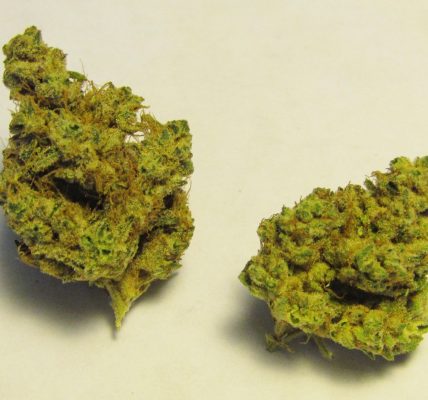 The United Nations International Narcotics Control Board’s latest annual report expressed dismay at the legalization of marijuana in Washington and Colorado and urged “the Government of the United States to take necessary measures to ensure full compliance with the international drug control treaties in its entire territory”. This led many media outlets to report that the U.S. had violated the UN drug control treaties to which it is a signatory. U.S. obligations under the treaties, and indeed the broader international future of marijuana legalization, are complex matters. But the essential points can be summarized in a 4-part Q&A.
The United Nations International Narcotics Control Board’s latest annual report expressed dismay at the legalization of marijuana in Washington and Colorado and urged “the Government of the United States to take necessary measures to ensure full compliance with the international drug control treaties in its entire territory”. This led many media outlets to report that the U.S. had violated the UN drug control treaties to which it is a signatory. U.S. obligations under the treaties, and indeed the broader international future of marijuana legalization, are complex matters. But the essential points can be summarized in a 4-part Q&A.
1. Is the U.S. currently in violation of the UN treaties it signed agreeing to make marijuana illegal? No. The U.S. federal government is a signatory to the treaty, but the States of Washington and Colorado are not. Countries with federated systems of government like the U.S. and Germany can only make international commitments regarding their national-level policies. Constitutionally, U.S. states are simply not required to make marijuana illegal as it is in federal law. Hence, the U.S. made no such commitment on behalf of the 50 states in signing the UN drug control treaties.
Some UN officials believe that the spirit of the international treaties requires the U.S. federal government to attempt to override state-level marijuana legalization. But in terms of the letter of the treaties, Attorney General Holder’s refusal to challenge Washington and Colorado’s marijuana policies is within bounds.
2. Can the UN punish countries that legalize marijuana? Only to a small degree. The UN International Narcotics Control Board is the keeper of the drug treaties and regularly chastises governments that violate their commitments. This can be embarrassing in international diplomatic circles, but no nation has ever collapsed due to embarrassment.
Because the International Narcotics Control Board has power over the production and transport of the legal medical supply of drugs it could in theory punish a country that legalized marijuana by imposing punitive controls on pain medications. But the international humanitarian outcry over such an action would be enormous. Further, the countries that produce the most opiate painkillers are not easy to push around (e.g., Australia, India, The United States). It is thus safe to assume that crimping the medical supply of drugs is a trigger that the Narcotics Control Board is not going to pull.
3. Does the entire UN drug treaty system need to be undone in order for countries to legalize recreational marijuana? No. Marijuana is just one of many psychoactive substances made illegal by the UN drug control treaties. Some drug legalization activists hope that if support for marijuana legalization grows internationally, it will require all UN drug treaties to be revised, thereby granting an opportunity to legalize cocaine, heroin and every other drug at the same time. This is a misreading both of international political sentiment and UN protocol.
Even among nations with some sympathy towards marijuana legalization, there is minimal enthusiasm for allowing, say, the Phillip Morris corporation to sell cocaine legally throughout the world as it does cigarettes. If the price of changing UN treaties regarding marijuana is legalizing all drugs, many otherwise sympathetic nations will vigorously oppose the action.
But as it happens, it’s a moot point because under U.N. protocol, new treaties supersede old treaties. Thus, if the nations of the world ever agree that they want to legalize recreational marijuana, they can write a new treaty focused just on that drug. This would nullify only the marijuana-related provisions of the overall UN drug control framework, leaving the status of other currently illegal drugs unaffected.
4. Wouldn’t a new UN marijuana drug treaty just be a vehicle for the U.S. to push its tough marijuana policies worldwide? Get ready for a surprise. If all nations adopted current U.S. marijuana policy, the result would be significant relaxation of international control over marijuana. Prior to the Obama Administration, a Rand Corporation study found that the level of marijuana enforcement in the U.S. was similar to that of Western Europe. Since Obama was elected, marijuana enforcement intensity has plummeted and the federal government has dropped its longstanding opposition to state-level marijuana decriminalization and legalization efforts.
Last but not least, remember that the only legal recreational marijuana markets in the world are not in the Netherlands or in Portugal but right here in the United States. Transplanting current U.S. marijuana policy worldwide via a new UN treaty would mean somewhat more liberal marijuana control policy in Europe, and dramatically more relaxed policy in most of Africa, the Middle East and Asia.
In short, supporters of marijuana legalization don’t really need to worry about the UN drug control treaties. Whether marijuana legalization sweeps the world or not depends on something far more fundamental: What people around the world decide is the best approach to the drug.
Source: Huffington Post (NY)
Author: Keith Humphreys, Professor of Psychiatry, Stanford University
Published: September 25, 2013
Copyright: 2013 HuffingtonPost.com, LLC
Contact: scoop@huffingtonpost.com
Website: http://www.huffingtonpost.com/
(c) Cannabis News – Medical Marijuana, Hemp, Marijuana News, Cannabis – Read entire story here.



